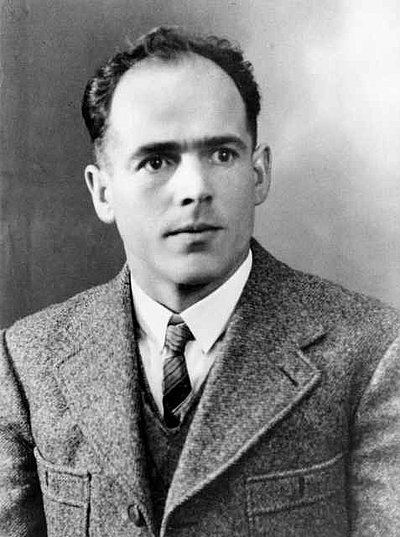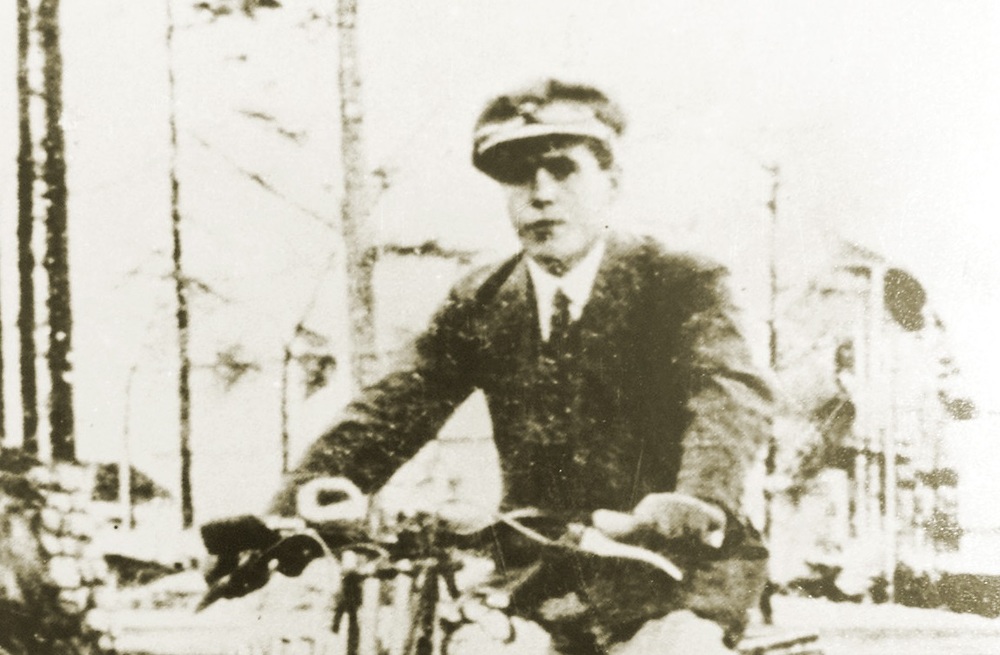When it comes to national heroes and celebrities, I always try to take a look on 'ordinary people' who became famous just because they spent their lives living according to their convictions, values and faith.
Today I would like to write a few words about Franz Jägerstätter. There are many important names connected with the World War II, but what I've found fascinating about his life is that he never actually tried to become a hero, rather he just could not avoid it.
He was born in 1907 in Sankt Radegung (North Austria). His parents were so poor that they could not afford getting married; his biological father was killed during the World War I and Franz received his family name after his step-father, who decided to adopt him.
As a young man, Franz could not find his place on the world, he tried to work as a miner in Styria, was a leader of a motocycle gang, had a daughter out of wedlock, and eventually came back to his family land in order to take care of his step-father's farm, he got married and had 3 daughters. He also became more involved in Catholic faith because of his wife who was a highly devoted Christian woman.
His idyllic family life came to end when the World War II began. 1940 he undertook military service in Wehrmacht but thanks to the intervention of the mayor of his village he was dismissed after 7 months (probable reason is the fact that farmers were also needed - every war needs food supplies etc).
However, during his service Franz had the possibility to take a closer look on the ideology of Nazi Germany. After he came back to his village, he declared in public that he would never go back to military service, mostly because of euthanasia that was carried on mentaly disabled people in Germany. When in 1943 he was called to take his service again, he declared that he would not do it because of his religious convictions, although the bishop and priests tried to convince him with an argument about his duties as a father and citizen. Actually, Franz was ready to take other service (for example in hospital) but because of his resistance to swear loyalty to Hitler he was accused of sabotage and sentenced to death. He was beheaded on 9th August 1943.
While still in prison, he wrote letters to his wife and daughters. These letters became an inspiration for the 2019 film A Hidden Life, written and directed by Terrence Malick (worth seeing!).
Franz Jägerstätter is considered to be Catholic martyr and was beatified by Pope Benedict XVI in 2007.
Today I would like to write a few words about Franz Jägerstätter. There are many important names connected with the World War II, but what I've found fascinating about his life is that he never actually tried to become a hero, rather he just could not avoid it.
He was born in 1907 in Sankt Radegung (North Austria). His parents were so poor that they could not afford getting married; his biological father was killed during the World War I and Franz received his family name after his step-father, who decided to adopt him.
As a young man, Franz could not find his place on the world, he tried to work as a miner in Styria, was a leader of a motocycle gang, had a daughter out of wedlock, and eventually came back to his family land in order to take care of his step-father's farm, he got married and had 3 daughters. He also became more involved in Catholic faith because of his wife who was a highly devoted Christian woman.
His idyllic family life came to end when the World War II began. 1940 he undertook military service in Wehrmacht but thanks to the intervention of the mayor of his village he was dismissed after 7 months (probable reason is the fact that farmers were also needed - every war needs food supplies etc).
However, during his service Franz had the possibility to take a closer look on the ideology of Nazi Germany. After he came back to his village, he declared in public that he would never go back to military service, mostly because of euthanasia that was carried on mentaly disabled people in Germany. When in 1943 he was called to take his service again, he declared that he would not do it because of his religious convictions, although the bishop and priests tried to convince him with an argument about his duties as a father and citizen. Actually, Franz was ready to take other service (for example in hospital) but because of his resistance to swear loyalty to Hitler he was accused of sabotage and sentenced to death. He was beheaded on 9th August 1943.
While still in prison, he wrote letters to his wife and daughters. These letters became an inspiration for the 2019 film A Hidden Life, written and directed by Terrence Malick (worth seeing!).
Franz Jägerstätter is considered to be Catholic martyr and was beatified by Pope Benedict XVI in 2007.




Komentarze
Prześlij komentarz